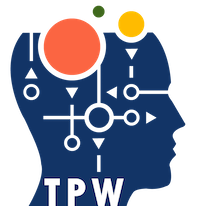I find this question very difficult to answer, not because I have no idea about it but because it is like asking the vegetable vendor if vegetables are fresh. My usual answer is “If you are not sure, most probably it is not for you” but then it is too simplistic. Therefore, this article is an attempt to look at the above question and its variants comprehensibly.
Few months ago, I wrote about Certifications – the need and the game in which I talked about what value certifications add and how corporations in behavioural science game the people to sell their senseless certifications. While I do not want to repeat anything I wrote there; based on my recent interaction with prospective participants in upcoming certification programmes, I have put together three simple questions to help you see if Certification can add value to your work or it will be a waste of money.
1. What Are Your Professional Objectives?
Clarify your career goals within the HR field. If you aim to specialize in areas such as talent acquisition, employee development, or Learning (with a capital L), a psychometric certification can provide you with the necessary skills to excel. For instance, organizations like us offer specialized training that is designed to help you specifically within these 3 developmental HR Domains – TA (Talent Acquisition), TP (Talent Pipeline) and Learning. If your objective is to be in Performance & Reward, Salary Administration, Grievance Handling, ER etc. getting a certification in Psychometric Testing is not going to help you.
2. How Relevant Is Psychometric Assessment to Your Current Role?
Evaluate the extent to which psychometric testing is utilized in your organization. If your role involves significant responsibilities in recruitment, training, or leadership development, being certified can enhance your effectiveness. Certifications such as those offered by us demonstrate a mastery of HR competencies, including assessment techniques, which can be beneficial in these functions.
3. Are You Committed to Continuous Professional Development?
Pursuing certification requires an investment of time, effort, and resources. Assess your willingness to engage in ongoing learning and professional growth. Certifications often necessitate continuing education to maintain their validity, ensuring that you stay updated with the latest practices in psychometric assessment.
By thoughtfully considering these questions, you can make an informed decision about whether obtaining a psychometric certification aligns with your professional aspirations and the demands of your current or desired HR role.
There is also an FAQ answering 13 most frequently asked question about psychometric certification: 13 most frequently asked questions
